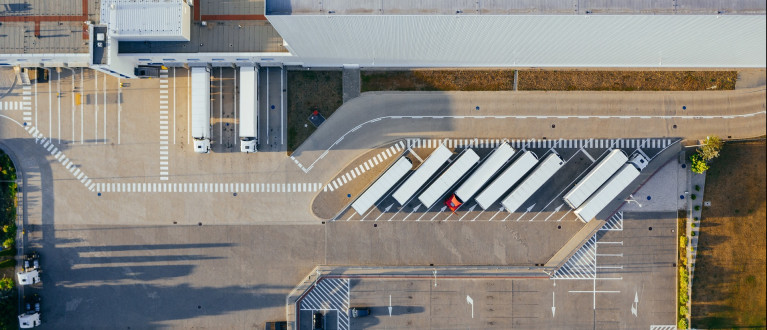Transport of goods: think about VAT and Incoterms
The logistics sector is a complex and dynamic industry in which efficient international trade is crucial. When moving goods across borders, various aspects come into play, such as VAT and Incoterms.

VAT during the trading process
In the logistics sector, VAT may be applicable at various points during the trading process, depending on the nature of the transaction and the parties involved. To determine the VAT implications, you need to ascertain the role you play in the supply chain. Are you a supplier, carrier, or recipient? Additionally, you need to determine the VAT qualification of the service you provide. Here are some key points to consider:
VAT and Incoterms
Incoterms are standardized rules that define the responsibilities of suppliers and buyers regarding the delivery of goods. They provide clarity on who is responsible for transportation costs, insurance, customs formalities, and risks during transportation. For VAT purposes, Incoterms are mainly relevant in determining who is responsible for importing the goods. When importing goods, it is often necessary to register for VAT in the country of importation because you need to pay import VAT there. Clear agreements and proper application of Incoterms ensure that you do not incur unexpected additional costs.
Timing of goods being placed in free circulation
If you import goods into the Netherlands, you must pay import VAT in the Netherlands at the time the goods are placed in free circulation. In principle, the moment of placing the goods in free circulation coincides with the moment the goods enter the Netherlands. However, it is also possible to place the goods in free circulation at a later time by utilizing a customs warehouse. In a customs warehouse, you can store goods before they are imported into the Netherlands or exported to other countries. Goods in a customs warehouse are essentially under the supervision of customs and have not yet been placed in free circulation. Therefore, you do not have to pay import VAT for goods in such a warehouse. This means that the VAT obligation is suspended until the goods are removed from the warehouse and placed in free circulation or exported to another country. This allows the VAT obligation to be delayed, for example, until the moment of resale. If the goods are never placed in free circulation in the Netherlands, you do not have to pay import VAT in the Netherlands.
VAT reverse charge mechanism for imports
If you regularly import goods from non-EU countries or goods for your customers, the VAT reverse charge mechanism for imports may be advantageous for your VAT position. With the VAT reverse charge mechanism for imports, you can shift the import VAT, which you would typically have to pay upon importation, to your VAT return. This provides a cash flow advantage because you do not have to finance the import VAT in advance. Instead, you can pay the import VAT and deduct it in your VAT return.
Want to know more?
At ABAB, we are eager to make a difference by sharing knowledge, providing advice, and ensuring clarity. Do you want to learn more about international VAT regulations or do you need advice and/or support regarding VAT issues? Please contact Anne Kin, International VAT specialist, by telephone on 013-5915125 or send Anne an email.





